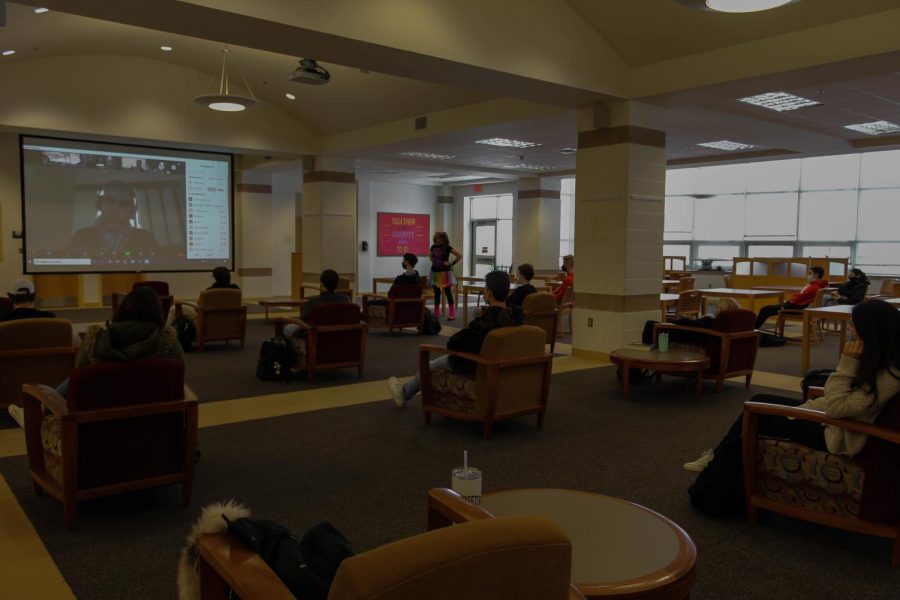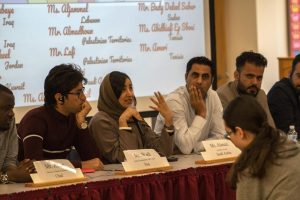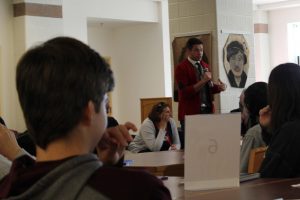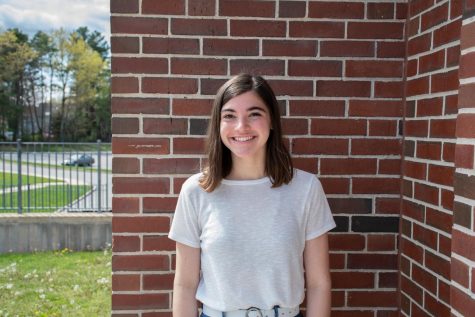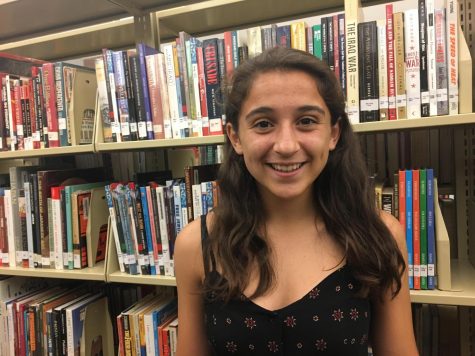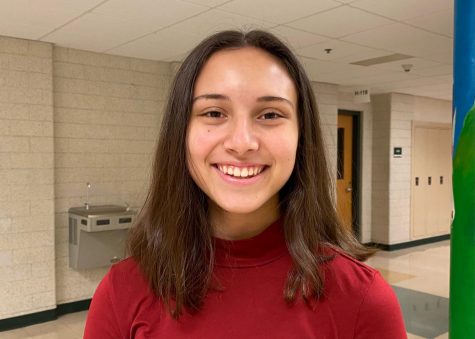Journalists from around the world educate Algonquin students on media
Journalist Eric Nahon from France starts off the panel by answering a question about United States election coverage in other countries.
November 30, 2020
Sixteen journalists from around the world held a virtual panel over Zoom on Friday, Oct. 30 to inform Algonquin students about misinformation in the media as part of the Edward R. Murrow program in the library.
The journalists and the students asked each other questions about several different topics, such as the United States election and the impact social media has on American opinions. They also shared their countries’ perspectives on American politics and discussed their roles as journalists.
“In the UK, the coverage is pretty much impartial to this day, or we try to be impartial,” United Kingdom journalist Sana Sanaullah said during the panel. “We try to keep the world in mind and do the job of a public broadcaster and cover the US election in the way the world expects us to cover it.”
Polish journalist Marcin Makowski mentioned that in his country, the government aligns with President Donald Trump.
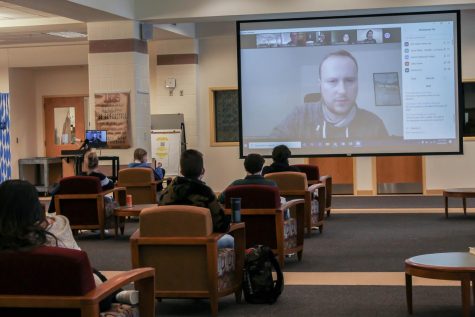
“From the other perspective in Poland, our government tends to be an ally to Donald Trump,” Makowski said during the panel. “Unlike most of the rest of Europe, [Trump] has good coverage. We are a border state with Russia, and the US has helped us with protection from Russian invasion.”
Students were able to ask the journalists questions about anything that spiked their curiosity.
“I feel like here we are not really exposed to what is happening in other countries,” senior Elise Arvanigian said to the journalists. “Why is the US such a big topic for you guys?”
Some journalists mentioned they have been much more invested in United States politics in the past four years because of the Trump family.
“Melania Trump is Slovenian by birth, which means that the current state of American politics is more interesting to Slovenian government and Slovenian media,” Slovenian journalist Alijaz Pengov Bitenc said to the group.
Typically, 100 to 120 students participate in the event, which is in its third year. This year, only 70 students were able to attend because of COVID-19 and scheduling challenges.
Although the event posed different challenges than last year due to the pandemic, Algonquin faculty helped make the event run smoothly. After a whole-group panel discussion, they split the students into breakout rooms. Each room had two journalists and about 10 students.
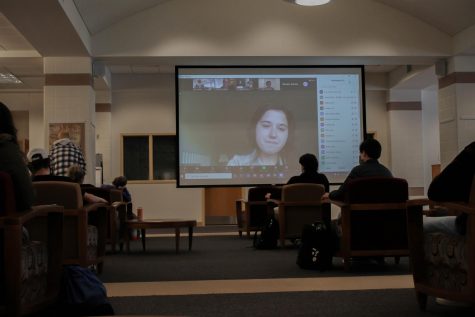
“We needed to create breakout rooms to accommodate students in the building and those who were remote,” librarian Kimberly Honey said via email. “I cannot give enough credit to Mrs. Turner and Mr. Calnan for their technical support; they were the wizards behind the curtain that made everything work!”
According to social studies teacher Kristen Turner, the fewer number of students and even smaller breakout rooms made the event more personal.
“This was even more intimate than [last year] because people were able to talk to [the international journalists] individually,” Turner said.
The journalists were especially interested in the use of social media in the United States and shared the impacts social media has on politics in their countries.
“In Austria, I think social media plays an important role,” Austrian journalist Ingrid Brodnig said during a breakout room. “We have had elections with misinformation on social media, and it is also interesting to see that elections are similar through different countries.”
The event came just in time for the presidential election, when some seniors voted for the first time.
“The things that happen in the United States have a far reaching effect, so it’s nice for students to get that feel, especially since you are now or soon going to be able to vote,” Turner said. “Your vote [was] weighing heavy on them, and they [were] not even here.”
Senior Joe Domolky was appreciative of the opportunity to speak to people from all around the world.
“Personally I feel like it was pretty cool,” Domolky said. “I have never talked to that many people from other countries, especially during the time of the election. They all had completely different views on the election and the information they got. It was interesting to see how different countries’ news channels tell news differently and to get their perspectives.”
Overall, Honey was pleased with how smoothly the event ran.
“There are small adjustments I would make in the future, but the manner in which we ran the meeting was well received by the journalists and other participants,” Honey said.



